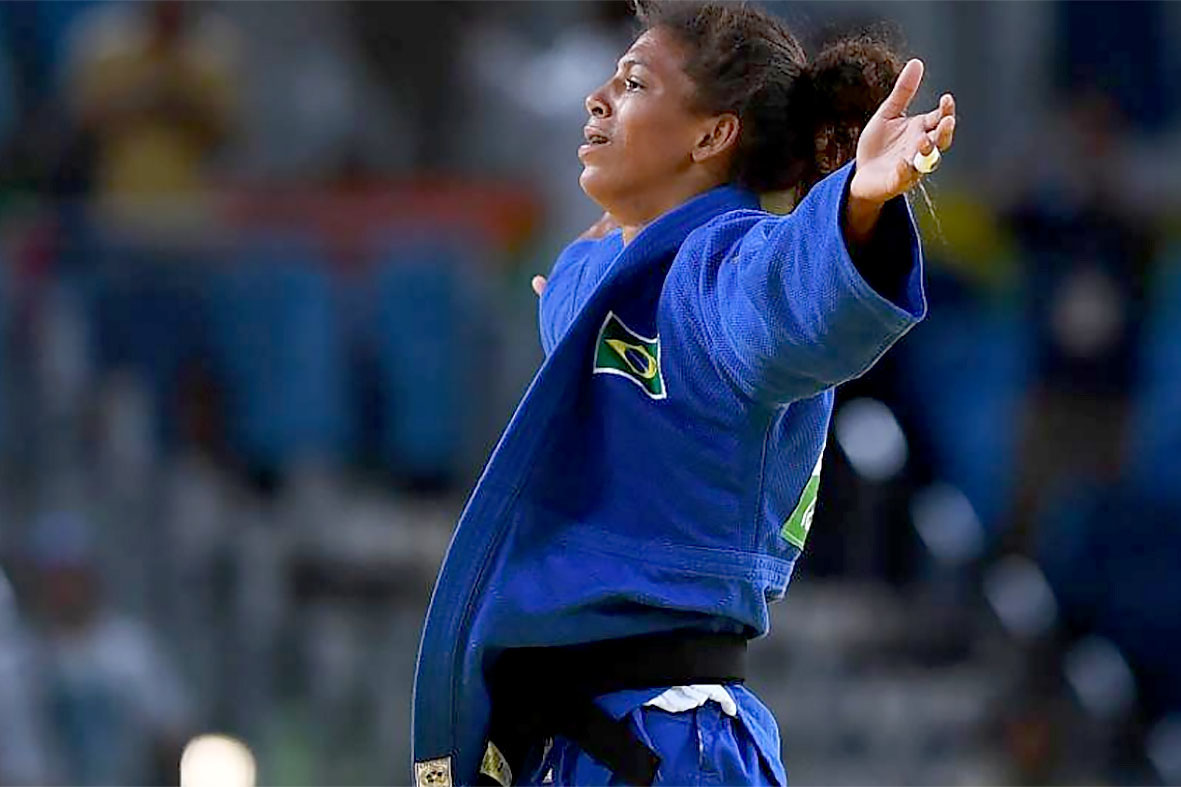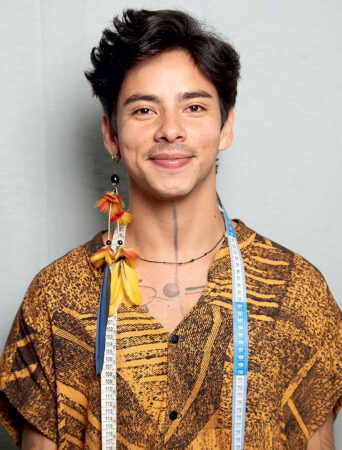 The tears of judoka Rafaela Silva as she won Brazilian first gold medal at Rio 2016 were just as moving as her personal story. Photo: rio2016.com
The tears of judoka Rafaela Silva as she won Brazilian first gold medal at Rio 2016 were just as moving as her personal story. Photo: rio2016.com Come as you are to the ‘inclusion Games’
(Rio de Janeiro, brpress) - Along with the medal winners and world records, the competitions have brought many examples of sportsmanship, love and respect for differences.
(Rio de Janeiro, brpress) – Black, white, latino, asian, caucasian, gay, lesbian, transgender, men, woman, refugees, muslims, catholics, hindus, rich and poor. The Rio 2016 Olympic Games will not be remembered only for the amazing sporting feats that are happening on a daily basis. Along with the medal winners and world records, the competitions have brought many examples of sportsmanship, love and respect for differences. Some of these moments in which compassion has reached the highest place on the podium. – and also the olympic spirt – are worth being relived.
Sports seems to be just an excuse to make Rio 2016’s the most inclusive games in history. The surprises have started when Brazilian rugby female player Isadora Cerullo was proposed by the volunteer Marjorie Enya on a microphone, publicly after a match at Deodoro Stadium. “I was not embarrassed”, said Izzy, how the player is known. Everybody applauded and cheered the pair. Izzy is among the 64 Rio 2016 athletes being openly gay, lesbian, bisexuals. In London 2012 they were 23; in Beijing 2008 just 10.
All are welcome
Even 64 being very few among the 11.000 athletes competing in Rio, the figure means a lot. The International Olympic Committee (COI) actually wanted theses Games to be the “inclusion Games”. Not only sexually but on ethnicity, religious, cultural and economical matters. Rio is already very proud of allowing people to feel welcome and included – even if they aren’t so in their own countries. At the Olympic Boulevard collecting signatures to favor Chinese gay marriage, China’s pro-diversity website WeChat’s activist Peng Yanhui believes “it’s a personal decision to come out, but athletes are afraid to do so in an hostile environment”.
The Olympic refugee team received the warmest ovation at the opening ceremony and has continued to do so in every event thus far. The athletes are using the platform of the Games to send messages via media to their friends and families who continue to live in conflict regions and have not heard from them in a long time. And the wider message, as IOC president Thomas Bach puts it, is: “This is a signal to the international community that refugees are our fellow human beings and are an enrichment to society.”
Brazilians and others
The tears of judoka Rafaela Silva as she won Brazil’s first gold medal at Rio 2016 were just as moving as the athlete’s story. Subjected to horrific online abuse after she went out of London 2012 – and also for being raised in the slum City of God, in Rio – , she almost decided to leave the sport for good. But her victory at Rio 2016 will serve as the greatest redemption for the athlete as well as being a victory for tolerance, inclusion and representation. Brazilian golfer Adilson da Silva was also moved to tears as he remembered his difficult beginnings as a caddie in a sport that at the time was considered reserved only for society’s elite. On the first day of the competition he had the honour of being the first to tee off in the golf’s return to the Olympic Games after 112 years.
Even the body shape can be a discrimination reason – in life and mostly in professional sports. Not in Rio 2016. Angolan handball goalkeeper, Teresa Almeida, known by her nickname Bá, may not have the same slender body as other athletes in the sport. But she was not made to feel out of place by Brazilian and international fans alike who appreciated her amazing displays and cheered her to the rafters, proving that there is no Olympic standard when it comes to athletes’ bodies. Local fans even sang: “Bá is better than Neymar!”
Human rights
India’s fastest female sprinter Dutee Chand is an example of how questioning rules could be transformed into a massive victory over the fact that international sports organisations have been policing women for “masculine” qualities — and turning their Olympic dreams into nightmares. Chand appealed her ban and has been the third Indian women to ever qualify for the Women’s 100 metres event at the Summer Olympic Games.
Chand was dropped from the Commonwealth Games contingent at the last minute after the Athletic Federation of India stated that hyperandrogenism made her ineligible to compete as a female athlete. There has been no suggestion that Chand has been involved in cheating or doping — the decision was made in compliance with International Olympic Committee (IOC) regulations on “female hyperandrogenism” designed to address a perceived advantage for female athletes with high androgen levels.
“Female hyperandrogenism”
Chand was dropped from the Commonwealth Games contingent at the last minute after the Athletic Federation of India stated that hyperandrogenism made her ineligible to compete as a female athlete. There has been no suggestion that Chand has been involved in cheating or doping — the decision was made in compliance with International Olympic Committee (IOC) regulations on “female hyperandrogenism” designed to address a perceived advantage for female athletes with high androgen levels.
The decision has been condemned by Australian intersex advocates.[ The Athletic Federation of India and IAAF’s actions were widely criticised as an affront to Chand’s privacy and human rights. The Indian government appealed to the Court of Arbitration for Sport (CAS)on behalf of Chand, and in July 2015 the CAS issued a decision to suspend the hyperandrogenism regulation for female track and field sports for two years, stating that insufficient evidence had been produced to indicate that there is any link between enhanced androgen levels and improved athletic performance.
Chang could then come to Rio. Unfortunately, when whole of India was waiting for her to qualify for the semi-final of the women’s 100m dash in Rio Games, she disappointed with a 11.69, much lower than what she is capable of and her personal best. After failing she tweeted: “It was just not my moment… thanks for trusting and having faith”.
Great Britain diver and medalist Tom Daley has been informally elected the “gay ambassador”of Rio Olympic Games for having posted a video on YouTube assuming his relationship with film writer Dustin Lance Black. Dutch gymnast Jeffrey Wammes has been called “pocket gay” in Rio because of his short height. Apparently, Whammies is taking the nickname sportily as a diversity acceptance and love manifestation.
The DJs at the Beach Volleyball Arena – one of the nicest competition spots in Rio – gave an especially warm welcome to Egyptian pair Nada Meawad and Doaa Elghobashy, just 18 and 19 years old. The players attracted the attention of the crowd for their discrete uniform, including heads covered, which is unusual for the sport, especially in Brazil. The public also extended that warm welcome, and even though the pair exited in the first round, they were missed by the fans.




